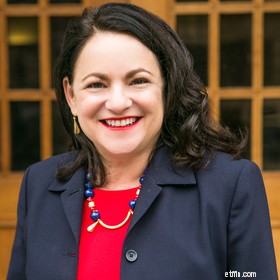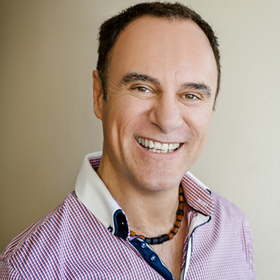Hoe te investeren in een post-COVID-19 wereld? Dit is wat iedereen vraagt. De pandemie heeft ons allemaal verrast. Veel bedrijven zijn gesloten, sommige wachten tot de beperkingen worden opgeheven, terwijl andere al failliet zijn gegaan.
De economie maakt een crisis door en dingen veranderen. Industrieën die vóór de pandemie welvarend waren, zoals toerisme (hotels, luchtvaartmaatschappijen, cruiseschepen), evenementenplanning en andere niet-essentiële bedrijven zoals schoonheidssalons, zijn erg hard getroffen en het is niet te zeggen of ze erin zullen slagen om weer aan de slag te gaan. hun voeten na de pandemie zullen verdwenen zijn.
Zelfs fysieke winkels en commercieel onroerend goed hebben geleden omdat de overgrote meerderheid van de mensen nu online winkelt. Bedrijven die vroeger kantoorruimtes huurden, hebben hun werknemers nu de mogelijkheid gegeven om op afstand thuis te werken.
We weten niet of, en hoeveel van deze veranderingen tijdelijk zullen zijn en welke permanent zullen zijn. Met zoveel onzekerheden is het extreem moeilijk, bijna onmogelijk om te voorspellen hoe de markt zal evolueren.
Bekijk onze Dr Wealth-app hieronder:
Daarom hebben we Minuca Elena ingehuurd om 45 financiële experts te bereiken en hen te vragen:
Blijf lezen om te zien wat ze te zeggen hadden.

De beste manier om in een post-COVID-19-wereld te beleggen, is door goedkope indexfondsen of ETF's (exchange-traded funds) te kopen waar u veel bedrijven in een fonds kunt kopen. Dit zorgt voor diversificatie in uw beleggingsportefeuille.
Door passief te beleggen op de aandelenmarkt, kunt u op lange termijn meerwaarden en dividenden genereren. Als u zich zorgen maakt over het timen van de markt, dan kunt u het gemiddelde van de dollarkosten proberen, waarbij u uw investering over een bepaalde periode spreidt en de hoogte- en dieptepunten van de markt koopt.
Dit helpt om uw risico te verminderen en u hoeft zich geen zorgen te maken over het vinden van het beste moment om aandelen te kopen.

Persoonlijk beleggen is sinds COVID-19 niet radicaal veranderd. Mensen moeten zich nog steeds concentreren op gebieden die ze kunnen controleren, zoals hoeveel ze uitgeven, wanneer ze met pensioen gaan, hoe ze hun sociale zekerheid gebruiken en hun belastingen in hun voordeel plannen. Uw persoonlijke beslissingen hebben veel meer invloed op uw financiële succes dan de ups en downs van de aandelenmarkt.
Als het gaat om uw investeringsbeslissingen, kunt u bepalen hoeveel risico u neemt en hoe u op de aandelenmarkt reageert, maar u kunt uw rendement niet controleren. Als je begint met het juiste risiconiveau en een goede geldbuffer op de bank hebt, is de kans groter dat je het enige doet waarvan ooit is bewezen dat het de aandelenmarkt verslaat:herbalanceren!
Onze investeerders waren in de winter van 2019/20 uit de aandelenmarkt aan het herbalanceren en kwamen eind maart 2020 weer in evenwicht in de buurt van de dieptepunten van de COVID-19-aandelenmarkt. Nu de markt eind augustus weer een recordhoogte heeft bereikt, waren we bezig klanten weer uit de aandelenmarkt te halen - niet om de markt te timen of te voorspellen dat hij zal dalen, maar om ervoor te zorgen dat ze het juiste risiconiveau behouden.

Wanneer de Federal Reserve de rente tot bijna nul verlaagt, betalen obligaties weinig rendement. Dus beleggers kijken ergens anders, stapelen zich op de aandelenmarkt en drijven bijvoorbeeld de aandelenkoersen op - een van de redenen waarom aandelenkoersen tot nu toe gescheiden lijken van de economie in het algemeen.
Beleggers hebben ook naar onroerend goed gekeken. De huizenprijzen zijn van juli 2019 tot juli 2020 met 5,5% gestegen, de meest recente gegevens die beschikbaar zijn van CoreLogic. Maar dat landelijke gemiddelde vertelt maar de helft van het verhaal. De vastgoedwaarde in kleinere steden, buitenwijken en landelijke gebieden is jaar op jaar gestegen, terwijl de vastgoedwaarde in de duurste steden (zoals New York en San Francisco) onderuit is gegaan.
Omdat aandelen en onroerend goed zo hoog geprijsd zijn, hebben we meer van ons geld in twee gebieden gestoken:inkomensgenererende eigendommen en kortlopende leningen voor aankoop-rehabilitatie aan investeerders. We investeren in het eerste omdat het rendement voorspelbaar is, gebaseerd op markthuren en prijzen. U kunt de cashflowcijfers letterlijk binnen enkele seconden uitvoeren met behulp van een huurinkomstencalculator.
In die laatste investeren we omdat ze afdwingbaar blijven, in tegenstelling tot hypotheken van huiseigenaren. Kredietverstrekkers kunnen tijdens de pandemie nog steeds beslag leggen op vastgoedinvesteerders. En met stijgende vastgoedprijzen en lagere lening-tot-waarde-ratio's, blijven deze leningen veiliger dan de meeste, zelfs als het rendement hoger is dan de meeste.

Ik ben altijd een buy-and-hold-belegger geweest die gebruikmaakte van breed gediversifieerde, goedkope indexfondsen. Ik geloof in het doen van investeringen met regelmatige tussenpozen om de voordelen van het gemiddelde van de dollarkosten te benutten. De weging van verschillende activaklassen moet altijd worden bepaald door de aanhoudingsperiode van de belegger (conservatief naarmate u ouder wordt).
In een post-COVID-wereld geloof ik nog steeds in diezelfde fundamentele filosofie. Ik denk echter ook dat het zinvol is om goed te letten op tekenen van een zwarte-zwaangebeurtenis zoals de pandemie.
Normaal gesproken pleit ik niet voor kortetermijnhandel, maar als u tekenen van iets heel negatiefs ziet, is het logisch om te overwegen een tijdelijke verschuiving naar een zeer veilige activaklasse zoals kortetermijnschatten te maken.

Een van de beste plaatsen om te investeren in de huidige markt is onroerend goed, vooral in gebieden die sterk zijn getroffen door de pandemie.
'Veilige gebieden' zien een hausse in de verkoop van onroerend goed, omdat mensen proberen te wonen in gebieden die minder zijn getroffen door het virus, en als zodanig is de onroerendgoedmarkt in die gebieden snel een verkopersmarkt geworden.
De gebieden die het meest door het virus zijn getroffen, zullen echter vastgoedwaarden zien die gunstig zijn voor de koper. In veel gevallen zijn/waren deze gebieden die waar pre-pandemie veel gevraagd was en waar waarschijnlijk weer veel vraag naar zal zijn als de pandemie voorbij is.

Post-Covid is de beste manier om te investeren door middel van dollarkosten. Met deze strategie kunt u uw beleggingservaring automatiseren. Door elke maand een toegewezen bedrag op uw beleggingsrekening te beleggen, voorkomt u dat u de markt "timt", wat bijna onmogelijk is. Niemand kan met 100% zekerheid voorspellen of de markt zal stijgen of dalen, dus waarom zou je het proberen?
Met het gemiddelde van de dollarkosten vermijdt u de ups en downs, maar u profiteert nog steeds van investeringen in een neerwaartse markt en investeert slechts een klein beetje wanneer de markt in de buurt van all time highs is. Overuren, het gemiddelde van de dollarkosten stelt u in staat om vooruit te komen. U kunt kapitaliseren wanneer de markt zijn dieptepunt nadert, omdat u nog steeds aan het beleggen bent. Ongeacht de huidige marktomgevingen houdt DCA u belegd.
Bovendien wordt deze strategie gebruikt door de legende zelf, Warren Buffett. Dus als u wilt investeren zoals het orakel in Omaha, begin dan met het gemiddelde van de dollarkosten. Het is gemakkelijk te gebruiken, krachtig en handig - en biedt u gemoedsrust. De beste manier om het meeste uit deze strategie te halen, is door te beleggen in twee tot drie indexfondsen met een lage vergoeding. Hierdoor blijft u gediversifieerd en blijft u beleggen in specifieke indexen die aansluiten bij uw financiële doelen en risicotolerantie.

Ze zeggen dat een recessie is "wanneer je buurman zijn baan verliest, en een depressie is wanneer je ook die van jou verliest".
Hoewel ik niet geloof dat de Australische economie in een depressie verkeert, hebben velen hun baan al verloren. en een economische kater is bijna zeker.
Hier zijn mijn volgende tips om de recessie te overleven.
De huidige gebeurtenissen zijn buiten onze controle. Hoewel we hier niets aan kunnen doen, is het belangrijk om ons te concentreren op wat we kunnen doen en bezig te blijven met de gebieden van het leven die we kunnen beheersen, zoals gezondheid, relaties, onderwijs en spirituele groei.
Zie dit als een kans om te verbeteren en iets te veranderen. Dit kan een verandering in carrière, aanvullende opleiding, of misschien zelfs het starten van een nieuw bedrijf inhouden nadat u een nieuwe behoefte/bedrijf heeft gezien. Een goed voorbeeld zijn distilleerderijen die nu handdesinfecterende middelen verkopen.
Bekijk alles wat u geld kost, met het oog op kostenbesparing. Dit omvat telefoonabonnementen, creditcards, elektriciteitsleveranciers, huur- en/of hypotheekkosten.
Met de besparingen die je hebt behaald (zie tip 3) bewaar je deze op een rekening die je kunt opbouwen en die je kunt gebruiken voor noodgevallen (3-6 maanden van je uitgaven is ideaal om gespaard te hebben). Als u al een noodfonds heeft, gebruik deze besparingen dan om eventuele leningen af te lossen of gebruik het om uw investeringen op te bouwen.
Hulp krijgen. Er zijn ook gratis financiële adviseurs waartoe u toegang hebt.

Als u een nieuwere belegger bent en post-COVID wilt investeren, is huishacking de veiligste manier. U kunt een huis met een kelder of een duplex kopen en deze extra ruimte verhuren. Met househacking kunt u uw hypotheek betalen met de huurinkomsten, waardoor u uw woonlasten elimineert. Als u elke maand zoveel geld bespaart, kunt u financieel een klap krijgen in het geval van een post-COVID-recessie en toch het hoofd boven water houden.
Wanneer de recessie voorbij is en u financieel herstelt, kunt u dat pand verlaten en het verhuren. Met het geld dat je hebt bespaard door het niet betalen van een hypotheek, zou je genoeg moeten hebben voor een aanbetaling op je volgende huis. De cashflow die u van de huurwoning ontvangt, helpt u de hypotheek op uw nieuwe huis voor uw gezin te betalen.

In post-COVID 19 moeten we nog voorzichtiger zijn met het betreden van eigendommen waar de cijfers zich opstapelen en er voldoende buffers aanwezig zijn. Investeer in gebieden waar betaalbaarheid een primaire factor is om het risico te minimaliseren en om het onroerend goed op lange termijn te kunnen behouden, ongeacht de marktomstandigheden.
Kies gebieden waar de werkloosheidscijfers niet zo hard zijn geraakt, aangezien de markt nog steeds actief zal zijn met de vraag en de huurmarkt in die gebieden vanwege de betaalbaarheid lagere leegstandspercentages zal hebben. Hierdoor blijven de vastgoedprijzen stabiel en de leegstand lager en dat is wat u als belegger wilt.
Kijk naar regionale gebieden terwijl mensen zich aanpassen aan het thuiswerken en de noodzaak om naar de stad te pendelen afneemt. De betaalbaarheid is veel hoger in de regio, vooral in gebieden zoals Geelong, die het aanzienlijk hebben gedaan omdat het nog steeds alle voordelen en subsidies krijgt van regionaal zijn, maar de op één na grootste stad in Victoria is.
Australië wordt een minder op de stad gericht land en met de flexibiliteit van thuiswerken, maakt de betaalbaarheid van regionale gebieden het aantrekkelijker voor de betaalbaarheid om het onroerend goed te krijgen dat u zoekt. Een huis in de regio kan evenveel kosten als een eenheid in de stad.

Het is een goed idee om een langetermijnstrategie te volgen, of we het nu hebben over pre, post of tijdens COVID 19.
Zo hoef je niet per se je strategie te veel te veranderen als je op de aandelenmarkt belegt.
Historisch gezien heeft de aandelenmarkt een gemiddeld rendement gezien van ongeveer 7-8% per jaar gecorrigeerd voor inflatie, hoewel dit rendement gepaard ging met veel ups en downs.
Dat gezegd hebbende, is het verstandig om op de hoogte te zijn van de consumententrends die zich hebben voorgedaan tijdens COVID 19 en mogelijk blijven optreden na COVID 19.
Enkele van de belangrijkste trends zijn de verschuivingen naar thuiswerken en online winkelen. Technologiebedrijven die tools voor videoconferenties, sociale netwerken, streamingdiensten, online winkelen en meer aanbieden, hebben een enorme stijging gezien.
De pandemie heeft deze trends een flinke duw in de rug gegeven, maar ze waren al eerder aan de gang, wat suggereert dat ze zijn gekomen om te blijven.
Het is ook vermeldenswaard dat sommige van de industrieën die het hardst door de pandemie zijn getroffen, hoogstwaarschijnlijk weer zullen stijgen.
Ik heb het over de toeristenindustrie waar luchtvaartmaatschappijen, hotels en evenementenbedrijven weer in trek zullen zijn, in een post-COVID 19-wereld.

De beste strategie is om continu belegd te blijven. Proberen de markt te timen werkt niet, en zelfs een kleine fout in de timing kan ertoe leiden dat u minder verdient dan wanneer u continu belegd zou blijven.
Als u in individuele aandelen belegt (wat u niet kunt doen in direct verkochte 529-plannen), is het algemene advies om te voorkomen dat u investeert in reizen, dineren en entertainment. Dit zijn sectoren die het niet goed zullen doen totdat de pandemie een verre herinnering is. Anders is beleggen in brede marketingindexen een goede langetermijnstrategie.
Over het algemeen zal de volatiliteit toenemen, dus u zult te maken krijgen met een verhoogd risico, niet alleen met een hoger rendement. Vandaag is een goed voorbeeld van de grote schommelingen die men kan verwachten. Als uw risicotolerantie het brandend maagzuur niet aankan, investeer dan in iets veiligs dat geen risico op verlies voor de opdrachtgever heeft.
Zoals altijd is het minimaliseren van de kosten de sleutel tot het maximaliseren van het nettorendement.

Als mensen me om advies vragen over investeren in een post-coronaviruswereld, is mijn antwoord altijd hetzelfde:blijf precies doen wat je deed voor de pandemie.
Degenen onder ons die voor hun pensioen beleggen, spelen het lange spel en het is onvermijdelijk dat er tijdens de decennia van toewijding aan deze investeringsstrategie zowel hoogte- als dieptepunten zullen zijn. Het is op dit moment absoluut een aanzienlijk dieptepunt, maar hoewel we misschien niet weten wanneer het zal eindigen, heeft de geschiedenis aangetoond dat we aan de andere kant uitkomen en dat de markt zich uiteindelijk zal stabiliseren.
Het feit dat deze trend zich waarschijnlijk meerdere keren zal herhalen tijdens uw beleggingsleven (hoewel hopelijk niet gekoppeld aan een pandemie!) betekent dat u vertrouwd moet zijn met deze ups en downs. Als u overweegt de manier waarop u belegt na COVID-19 te veranderen, is het tijd om uw risicobereidheid nog eens onder de loep te nemen en uw beleggingsstrategie dienovereenkomstig aan te passen.
Bovendien is vastgesteld dat degenen die regelmatig blijven beleggen, ongeacht hoe de markt presteert, tegen de tijd dat ze met pensioen gaan de sterkste portefeuilles hebben. Dit toont aan dat de beste manier om te investeren zowel in de huidige situatie waarin we ons allemaal bevinden als in een post-COVID-19 wereld precies hetzelfde is:blijf doen wat je doet en vestig je voor de lange termijn.

Het klinkt misschien niet zo glamoureus als de deskundige investeringstechnieken die door de supremo's van Wall Street worden gebruikt, maar gewoon uw tijd investeren in het verkrijgen van betere deals voor uw grootste huishoudrekeningen, zoals uw hypotheek, kan een groot verschil maken.
Hoewel er geld te verdienen en te verliezen is op de aandelenmarkt, zult u versteld staan hoeveel geld u voor uzelf kunt verdienen door simpelweg de rente op uw woninglening te verlagen. Zelfs een half procentpunt van uw tarief kan tienduizenden besparingen opleveren gedurende de looptijd van de lening. Dat is veel minder geld voor de kredietverstrekker en meer geld voor u om uit te geven of mee te investeren.
In moeilijke economische tijden zijn betrouwbare kredietnemers erg waardevol voor kredietverstrekkers, dus als u een goede kredietgeschiedenis en voldoende eigen vermogen in uw huis heeft, zou u in een uitstekende positie kunnen zijn om met hen te onderhandelen voor een lager tarief.
Evenzo kunt u duizenden per jaar besparen op uw verzekering, telefoonabonnement, internetabonnement en nutsvoorzieningen. De markt voor deze producten beweegt behoorlijk snel. Als je niet af en toe even rondkijkt, loop je kans op geweldige aanbiedingen.

Als we nadenken over investeren in een post-COVID 19-wereld, moeten we rekening houden met een eendelige strategie en eendelige tactiek. Als het gaat om strategische planning, moet u overwegen te investeren:
Investeer met de lange termijn in gedachten
Heb een spelplan of idealiter een financieel plan dat naar uw toekomstige doelen kijkt. Soms, als we ons te veel concentreren op het instrument dat we gebruiken, zijn we uiteindelijk ver verwijderd van ons doel.
Vergeet contant geld aan de zijlijn niet
Iedereen heeft een noodfonds nodig, maar dit is een goed moment om dat noodfonds wat groter te maken. Wat dat doet is ten eerste, het geeft gemoedsrust dat wat er ook met uw beleggingen gebeurt, uw dagelijkse financiële situatie hetzelfde is. Ten tweede biedt het u "droog poeder", zoals we in de branche zeggen, zodat wanneer zich een investeringsmogelijkheid voordoet, u van die kans kunt profiteren.
Belastingen zullen altijd belangrijk zijn
Mensen denken dat op de markt komen de beste manier is om te profiteren van recessies, maar er zijn ook mogelijkheden om zaken op een fiscaal efficiënte manier te verplaatsen. Als u niet-pensioenrekeningen heeft, kunt u mogelijk een aftrekpost van $ 3.000 per jaar krijgen, of als u rekeningen vóór belasting heeft, kan het doen van Roth-conversies u in de toekomst veel belasting besparen.
Hoewel COVID 19 veel verandering en volatiliteit op de markt heeft gebracht, blijven de fundamenten van financiële planning bestaan.

Omdat ik geloof dat duurzame investeringen veerkrachtiger zijn dan niet-duurzame investeringen en de gegevens dat ondersteunen, zou mijn advies aan iedereen die kapitaal op een zinvolle manier wil inzetten, zijn om hun persoonlijke belangen en moraal af te stemmen op het soort investeringen dat ze doen.
Wat dit in de praktijk betekent, is due diligence en onderzoek doen naar het ethos en het bedrijfsgedrag van de bedrijven en producten die ze zelf gebruiken.
We kunnen allemaal voorspellen en aannemen dat grote technologieaandelen zullen blijven stijgen in een hyper-inflatoir tempo waarin ze hebben, maar wanneer u op zoek bent naar langetermijninvesteringen die kijken naar echt duurzame en impactgerichte kansen zoals impact-ETF of E.S.G. indexen zijn een geweldige manier om breed in te zetten op duurzame fondsen en bedrijven.

Deze pandemie heeft ons laten zien dat thuiswerken op afstand levensvatbaar is en in veel gevallen de voorkeursmanier van werken. Mijn suggestie voor mensen is om hun tijd en moeite te investeren in het krijgen van een fulltime baan op afstand die ze kunnen doen terwijl ze in het buitenland werken. Ik ben een fervent voorstander van het gebruik van geografische arbitrage om besparingen en investeringen te vergroten.
Een van de eerste stappen die financiële planners in elke financiële situatie aanbevelen, is het verlagen van uw maandelijkse kosten voor levensonderhoud. Een kant-en-klare, maar uiterst effectieve manier om uw kosten aanzienlijk te verlagen, is verhuizen naar een goedkoper land. U kunt uw maandelijkse uitgaven tot 70% verlagen door gewoon in een vliegtuig te springen.
Als u uw kosten voor levensonderhoud in het buitenland verlaagt terwijl u werkt met een Amerikaans salaris, kunt u $ 20.000- $ 30.000 per jaar besparen. Dat is geld dat op de aandelenmarkt wordt geïnvesteerd of dat wordt gebruikt om je studentenrekeningen af te betalen.
Ik heb bijvoorbeeld in 10 landen gewoond terwijl ik gedurende vijf jaar 40 landen heb bezocht. Ik reis voortdurend om geld te besparen. Het gemiddelde salaris in de VS is bijvoorbeeld $ 3.700 per maand. Sinds januari genoot ik van het leven op de Filipijnen en gaf ik ongeveer $ 1500 per maand uit.
Een persoon die een externe baan in de Filippijnen heeft, zou $ 2.200 extra per maand kunnen investeren. De lage kosten van levensonderhoud in de Filippijnen omvatten een fantastisch leven met een actief sociaal leven, een mooi appartement in een trendy deel van de stad, frequent uit eten gaan en schoonmaakservice.
Meer investeren en sparen? De ruige paar maanden op de aandelenmarkt aan het begin van de pandemie hebben me ervan overtuigd dat we een langdurige economische moeilijke periode tegemoet gaan. Ik heb verschillende landen onderzocht waar ik een visum voor de lange termijn kon krijgen met lagere kosten voor levensonderhoud dan $ 1500 per maand.
Mijn keuze is Turkije, waar ik schat dat mijn maandelijkse kosten van levensonderhoud zullen dalen tot $ 800- $ 1000 per maand. Vorige maand trotseerde ik een internationale vlucht van 20 uur om naar Antalya, Turkije te verhuizen.

Een van de beste manieren om in een post-COVID 19-wereld te beleggen, is door een zeer gediversifieerde portefeuille op te bouwen die is afgedekt tegen toekomstige marktschokken. De aandelenmarkt is in 2020 zeer volatiel gebleken en de obligatierendementen blijven historisch laagterecords.
Alternatieve beleggingen bieden een mechanisme om een deel van een portefeuille toe te wijzen aan materiële activa die niet gecorreleerd zijn met aandelen of vastrentende waarden, wat zowel het huidige rendement als de langetermijnwaardering kan opleveren. Voorbeelden van niet-gecorreleerde activa zijn onder meer hout, edele metalen, onroerend goed en landbouw.
Bovendien heeft COVID-19 aangetoond dat veel sectoren van de economie sterk afhankelijk zijn van kwetsbare toeleveringsketens, waaronder voedseldistributie. Investeren in bedrijven die het goed zullen doen in tijden van economische onzekerheid is essentieel om een pensioengerechtigde leeftijd intact te houden tijdens marktcorrecties.
Een verscheidenheid aan online platforms biedt beleggers toegang tot particuliere bedrijven die werken aan het bouwen van een robuustere infrastructuur in sectoren zoals de agribusiness en de gezondheidszorg, terwijl ze geïsoleerd blijven van de volatiliteit die inherent is aan openbaar verhandelde effecten.
Nieuwe investeringen in regeneratieve landbouw, evenals in lokale en duurzame landbouw, zullen nodig zijn om de Amerikaanse productie te verschuiven om verstoringen van de toeleveringsketen op te vangen en tegelijkertijd voedsel veilig en betaalbaar te houden voor iedereen.

Investeren in de huidige markt en het economische klimaat was niet eenvoudig! Aan de ene kant wil je niet vechten tegen de FED en het huidige versoepelingsbeleid.
Aan de andere kant drukt de FED biljoenen bij en de waarde van de dollar zal op korte tot middellange termijn zeker afnemen. We bevinden ons momenteel ook in een recessie en de 'echte' economie laat weinig tot geen herstel zien.
Evenzo lijkt de aandelenmarkt euforisch te zijn, lijken andere activaklassen extreem hoog gewaardeerd en is de reële rente negatief. Wat doet u als belegger, met zoveel verschillende variabelen om in gedachten te houden?
Diversifieer en evalueer de alternatieve kosten van uw geld. Aangezien inflatie in de nabije toekomst een grote zorg is voor iedereen, wilt u niet alleen in contanten zitten, maar u wilt ook niet alleen in risicovolle en zeer gewaardeerde activa zoals aandelen zitten.
Mijn aanbevelingen:Investeer in onroerend goed met een goede cap rate die zichzelf terugbetaalt en op lange termijn groeit. Laat geen geld op hoogrentende spaarrekeningen staan, aangezien u daarmee niet eens de verwachte inflatiebenchmark verslaat.
Houd winnaars op de aandelenmarkt, maar wees niet bang om wat contant geld te nemen en te diversifiëren met andere activa, of het nu cryptocurrencies, waarde- en dividendaandelen zijn (die niet ernstig worden beïnvloed door economische onzekerheid), obligaties, enz.

Dit lijkt misschien een beetje saai, maar ik geloof dat de beste manier om te investeren in een post-COVID-wereld dezelfde is als de beste manier om te investeren in een pre-COVID-wereld:brede, goedkope passieve indexfondsen.
Uit het meeste onderzoek blijkt dat zelfs de beste beleggingsadviseurs de toekomst op lange termijn niet kunnen voorspellen op een manier die hen in staat stelt de markt consequent met voldoende marge te verslaan om ook de kosten van hun diensten te dekken.
Persoonlijk ben ik van mening dat klanten hun geld moeten verdienen en hun aandacht moeten richten op wat ze doen als primaire bron van inkomsten, en vervolgens hun vermogen zonder veel poespas moeten laten groeien.

Er lijken meer vragen dan antwoorden te zijn als je kijkt naar het investeringslandschap in een post-COVID 19-wereld. Om te beginnen, hier in de VS, heeft onze Federal Reserve aangegeven dat de rentetarieven de komende vijf jaar ongelooflijk laag (in feite 0%) zullen zijn.
Na de Grote Recessie stimuleerde de lage-renteomgeving tonnen aan investeringen en een bijzonder krachtig herstel in de zwaarst getroffen sector van de economie:onroerend goed.
Deze keer zien we echter, specifiek voor onroerend goed, meer activiteit in de woonruimte. De lage rente lijkt meer een aantrekkingskracht te hebben op de stadsbewoners die een massale uittocht uit de steden leiden ten gunste van meer ruimte in de buitenwijken. Op het gebied van commercieel vastgoed hebben multinationals, in tegenstelling tot in 2008-09, aangekondigd dat ze hun rangen van telewerkers zullen uitbreiden en hun fysieke kantoorruimte zullen verkleinen.
COVID 19 heeft de acceptatie van technologie (met name:werken op afstand en vergaderingen op afstand) versneld in een mate waarvan veel analisten voorspelden dat het jaren in de toekomst zou zijn. Hoe dit zich zal vertalen en onze markten zal doordringen, is nog steeds een veelbesproken vraag.
De verliezers in onze huidige zakelijke (en rente) omgeving:commercieel vastgoed, energiebedrijven, vastrentende beleggers
De winnaars:wie weet.

Het is van cruciaal belang om nauwkeurig de sectoren te identificeren die op weg zijn naar astronomische groei na de COVID-19-pandemie. Dit vereist geen goddelijk profetisch vermogen; historische gegevens kunnen u een ruim beeld geven van wat er achter de coronavirushorizon ligt op het gebied van beleggen.
Zoals gewoonlijk is de technologieniche de meest veerkrachtige sector om in te investeren tijdens en na de pandemie. De twee mooiste industrieën hier zijn automatisering en e-commerce.
We hebben gezien dat technologiegerichte bedrijven zoals Tesla in 2020 een exponentiële stijging doormaken. Het is niet verwonderlijk dat de aandelen van Tesla alleen al voor 2020 meteorisch zijn gestegen tot 500%. Zoom is ook aan het feesten als '99 met een winst die met 3.300% schiet, zoals het Q2-resultaat meldde!
Afgezien van deze industrieën, staat het transport klaar voor een gedurfde stijging zodra de pandemie opklaart, jongens als Union Pacific, J.B. Hunt Transport Services zijn klaar voor een heropleving.
Als je kijkt naar de meest aantrekkelijke bedrijven om in de transportniche te investeren, moet je verder kijken dan het generieke cluster van logistieke bedrijven, luchtvrachtbedrijven, luchtvaartmaatschappijen en je richten op specifieke zaken zoals het brandstofverbruik van het transportbedrijf, schulden (gezien hun enorme behoefte aan apparatuuraankoop ), COVID-reactie, en hoe goed ze momenteel omgaan met de concurrentie in hun niche.
Persoonlijk heb ik een voorkeur voor transportbedrijven die neigen naar automatisering.

Het grootste deel van de recente stijging op de aandelenmarkt sinds maart is naar beneden gedreven door technologie en een of ander farmaceutisch bedrijf dat betrokken is bij de vaccininspanningen.
De vraag die ik heb is waar het geld naartoe gaat, nu iedereen de technische upgrades heeft die ze nodig hebben en mogelijk zelfs terugschroeven naarmate de zaken beginnen te normaliseren.
3 van de 5 slechtst presterende sectoren dit jaar zijn nutsbedrijven, duurzame consumentengoederen en niet-cyclische consumenten. Ik geloof dat al deze drie goede wind in de rug om het risico te verminderen als de markt tuimelt en enkele van de sterkere sectoren zullen zijn als de zaken beginnen te normaliseren.
De nutssector is een zeer stabiele sector en levert behoorlijk goede dividenden op. Aangezien de Fed een bijna 0-rentebeleid voortzet, zullen obligaties en cd's een zeer lage rente hebben, waardoor gepensioneerden en oudere beleggers naar betrouwbare aandelen met goede dividenden zullen gaan en dit is waar de nutsbedrijven van pas komen. Begrijp me niet verkeerd, u zult niet zie een aanloop zoals je deed met technologie hier, maar je krijgt wat veiligheid en sterke dividenden om je portefeuille op te vullen.
Met de consument cyclisch en niet-cyclisch, ben ik ervan overtuigd dat mensen dingen zullen gaan kopen die ze al sinds het begin hadden uitgesteld. De spaarquote voor Amerikaanse burgers is de hoogste in meer dan 20 jaar en dat geld zal weer gaan stromen en ik denk dat het voornamelijk in duurzame consumptiegoederen en niet-cyclische consumenten zal zijn, ook door meer consumentenbestedingen.
Dit is waarschijnlijk een goed moment om te kijken naar het opnieuw in evenwicht brengen van uw portefeuille als u significante posities in de technologiesector had en een deel van die winsten te gaan verplaatsen naar de zwaarst getroffen sectoren die u zouden moeten beschermen en mogelijk de volgende grote sector zouden moeten zijn.
Ik zou ten koste van alles REIT's vermijden. In gesprekken met veel mensen kijken hun bedrijven naar het verkopen van hun kantoorruimte, het combineren van gehuurde ruimte en het overstappen op een flexibelere ruimte-opstelling die een veel kleinere voetafdruk beslaat.

The best way to invest in a post-covid world is the same as how you would invest in a pre-covid world. Stay the course and don’t abandon your investment strategy. A portfolio that is well diversified and has proper risk exposure based on your tolerance is built to withstand good and bad markets.
Many investors become tempted to reduce their equity exposure and go to cash or bonds because of the perception of where the economy is headed and the impact it may have on their portfolio.
Luckily, history is on our side when it comes to the years that follow a recession. Of the 15 US recessions that have occurred over the past century, 73% of the time, returns on stocks were positive two years after a recession began.
Deciding to change your investment strategy shouldn’t be driven by trying to guess what the market might do, particularly during a recession. Succumbing to this strategy could potentially derail your long term financial goals.
By staying disciplined and revisiting your investment strategy periodically, rather than only during periods of high market volatility, you give yourself the opportunity to have a better investment experience.

The technology sector is on fire right now because more and more people are engaging in e-commerce as a way to order products and services while staying at home, so a juggernaut like Shopify might be a good investment, or Amazon, Google etc. That said, apart from choosing specific companies, I still recommend diversity no matter what kind of instrument or company people choose to invest in.
While emerging technology is always attractive in the companies behind work from home products and services like Zoom are taking off in terms of share price, it’s still important to balance out the overwhelming impact coronavirus is likely to have on the economy going forward. That means balancing your portfolio appropriately to account for hedging against the market and investing in things like precious metals or even digital currency if you believe in it.
As always, you still want to keep some of your money and blue-chip stocks like Walmart or index funds like the S&P 500, and if you have the money, perhaps a real estate investment might do you well. People always need somewhere to live regardless of the state of the economy.
As a last bit of advice. Keep in mind that the stock market and nearly every other form of investment has been skyrocketing since the coronavirus pandemic grabbed hold of the whole world in mid-March. As Warren Buffett says, ‘be fearful when the markets are greedy, and greedy when the markets are fearful’.

A post-Covid world is one of financial repression where central banks favor borrowers over savers by keeping short-term interest rates low and doing what they can to keep long-term interest rates low.
In that environment, cash flow yields and expected investment returns are low. Savers will have to save more. They will have to take more risk by keeping a higher allocation to stocks in order to benefit from earning growth.
Investors need to focus on total return, not just income. There remain some attractive income strategies such as preferred stocks and dividend-paying common stocks.

Although property investments have been fluctuating for many years due to various declines, the general trend suggested that capital injections into real estate were on the rise. We do not see any reasons why this trend should reverse. Property still generates good relative returns compared to other asset classes.
Let’s look at the most resilient vehicle for investing in real estate – REIT. These trusts acquire, build, and manage properties through pooled investments. Investors buy REIT stock and become co-owners of a property.
COVID-19 impacted the REIT segment. For instance, real estate investment trusts in the USA went down by 8.2% on average in mid-May due to lower rent collection in all sectors. In April, REITs collected only 71.4% of expected revenue from shopping centres and retail spaces.
Now that lockdown is being gradually lifted, the largest market players in the USA and UK are re-emerging (e.g. Simon Property, Segro Plc). Some REITs generate steady revenue even in a crisis and recover faster than others. During the pandemic, these are the trusts focusing on data centres, storage spaces, and healthcare facilities.
REITs are resilient to market fluctuations and interest rate changes, as their loan-to-value ratio is sustained at no more than 30–40%. Following the 2008–2009 recession, REITs have been reducing financial leverage and increasing owned capital. When the recession set in, REITs were using 60–70% of borrowed funds to finance their activities.
During the 2020 global crisis, REITs are outperforming shares.
In early June, REIT indices rose almost by 9%, whereas S&P 500 and Dow Jones Industrial went up by 8.3%. REIT indices are expected to trend steadily upward faster than others, as was the case during the 2008 financial crisis.
REITs can bring higher returns in a crisis because they are tied to the real estate cycle, which lasts about 18 years. Shares are impacted more by the ups and downs of the economy – underperforming during recessions while real estate investments generate steady returns.
A REIT is a very good independent piece of an investment portfolio after the crisis. For the last twelve years, REITs showed the least diminishing returns compared to other liquid financial instruments, as well as resilience to interest rate changes and inflation, fast successful recovery in the post-crisis periods, and steady dividend payouts.

Based on my own research and what I’ve been noticing with my existing investments, here is my opinion on the best way to invest.
I’m keeping a lot of my net worth in appreciating assets with little volatility such as real estate, gold / silver, and well established blue chip stocks or ETF’s. I’m also keeping at least 25% of my net worth in cash so I have a rainy day fund.
The key to this strategy is that I have enough cash on hand for immediate purchases and everyday life expenses. But, at the same time, enough invested in assets like stocks or real estate which will appreciate to protect myself from inflation.
The FED recently released more dollars into the money supply and has spoken about averaging a target for inflation at around 2% going forward.
No one can tell for sure how this will all play out. But, I’m sticking to a strategy I know worked through the last great recession of 2008 based on my own experience. I’m also avoiding tech stocks right now which are built upon too much hype and not the fundamentals.

I think index funds are a great way to invest money during the pandemic. We don’t know what the world will look like after the pandemic.
As things stand today, we have seen the travel industry get hit hard by the pandemic. No one wants to get on an airplane and business travelers aren’t filling hotels. Some people are speculating that business travelers will complete all of their meetings over Zoom in the future. Others think that business travel may bounce back sharply in a post-COVID world. Today both outcomes seem equally likely.
On the other hand, the pandemic has helped some companies soar to new heights. But it’s possible that they’ll fall back to earth once everyone has returned to their normal routines. Because we don’t know what the future will look like, index funds are a great way to grow your portfolio during the pandemic.
By investing in index funds, you are betting that after the pandemic the economy will grow. This seems like a safe bet. When things return to normal, people will spend money, there will be innovation, and the economy will grow. And as the economies grow and businesses profit, your index funds will grow too.

In a post-COVID 19 world, I would recommend continuing to diversify your investment portfolio to different stocks as well as over time. While I would usually recommend investing in dividend paying stocks, and reinvesting the returns.
Post-COVID 19 requires investors to be extra cautious when investing in stock with the aim of dividend cashflows. According to Janusn Henderson asset management group, 27% of companies have cut dividends, half of which suspended dividends all together as a result of COVID 19.
There are several industries that are currently thriving thanks to COVID 19, while other are suffering serious losses. I would avoid industries that are deemed to struggle in the coming months or even years due to the pandemic. These include tourism, brick and mortar, amongst others. Instead focus on industries that are likely to benefit from the impact of COVID 19, such as health tech and communications tech.
As always, keep the portfolio diversified and avoid putting all eggs in one basket. Relatively cheap financial instruments such as ETFs are useful to gain a broad diversification. If we go into a bear market, hold your positions. Use the opportunity to buy rather than sell.

My main takeaway from all of the effects COVID has had on the market is a re-emphasis on long-term investing. We’ve seen dramatic growth in the stock market over the last few months, which has been an almost polar opposite trend of the world sentiment. This just proves that no matter how skilled you are as an investor, no one can truly time the market.
In addition to that, the last few months have shown that markets and price movements can be counterintuitive to the traditional metrics many use to measure the health or attractiveness of a particular investment. Index funds and other passive investing options continue to prove to be attractive options in any conditions.
On the housing front, real estate has largely shown to be relatively resilient even through the pandemic. Although partially driven by historically low-interest rates, housing prices have largely remained flat. This is not necessarily reflective of every geographic area in the United States, but the initial fear of 2008-type effects happening were blown out of proportion in hindsight.
There could still be a situation where we just aren’t feeling the effects that COVID has had on the nation and the globe due to the recent expiration of many economic impact stimulus policies, but only time will tell.

Everyone keeps asking what the world will look like post-COVID 19 and while that is an important question, a question that is perhaps more important is how is the world the same? Investing really hasn’t changed much because the basic principles of investing are meant to handle situations as extreme as COVID-19.
Good investing has three major principles, those are:diversify and minimize risk, reduce fees, and invest for the long term.
1. Diversify and minimize risk are hugely important principles that everyone seems to forget whenever there is a major crash. The “don’t put all of your eggs in one basket” principle is good because you minimize the risk of losing all of your money. If you have invested broadly across multiple industries within and without the stock market the chances of your losing all of your money are basically zero.
If you do lose all of your money because there is a situation that is so bad losing all of your money will be the least of your concerns (for example, a meteorite hits the planets and a mass extinction occurs–sorry to be a downer, but that is the truth).
2. Reduce fees is another important principle because regardless of how well your investment is doing (on up years and down years) the fees still get taken out every month or year. Therefore, the higher your investment fees are (usually called an advisory fee or a management fee) the less money you will have in your account regardless which is bad for long term growth.
3. Invest for the long term is the last principle. If you are investing for the long term a major dip is NOT a time to be concerned but a time to stay calm. As the market goes down you have not technically lost money UNTIL you pull that money out of the market. Barring an end of the world situation, the market WILL come back. So just wait it out. Even better, invest in the bottom and ride it up to the top. Investing should not be looked at in the short term.
The people that lost their shirts in the COVID dip are the people that were heavily invested in one sector that lost considerably (not diversified), had a high-fee actively managed account (didn’t reduce fees), and pulled their money out of the market “before I lose any more money” which turned their loss on paper into actual loses that are all but impossible to recover from (didn’t invest for the long term).
So what does that lead to on a high level? Post-COVID 19 just keep investing in a diversified, low fee investment for the long term. I would recommend index funds, but mutual funds and REITs can also be good to mix into your investment. It just depends on your goals. But keep investing!
On an individual level though, many things may have changed. How did you react emotionally when your investments dropped dramatically? How did you feel as the stable growth of more than a decade was wiped out? If you were freaking out, then it might be a good idea to change your investment strategy after things calm down.
Try something with less risk like bonds, or keep more cash on hand in case of emergencies. Make sure that you are ready and comfortable just in case something else this widespread and catastrophic happens again. Even if it doesn’t it will help you sleep at night and will strengthen your overall investment position.

We’re big believers that pretty much any time is a good time to get into the market, as long as your intention is to stay invested long-term. And that the same advice applies today as it did yesterday and as it will tomorrow.
It’s more important to consider your own age and investing goals rather than the current state of affairs. No one can predict the future, so investment advice is all based on historic stock market performance.. The broad stock market has a long history of increasing in price and paying dividends over the long run. Whenever you wait to invest, you’re likely just consigning yourself to pay a higher price for those same shares later.
We started investing when we were in our early 20s, almost a decade ago now, so our portfolio tilts a little more toward high-risk, high-reward asset classes, like equities, instead of safer bets like bonds. We also have a longer time horizon until we draw down our portfolio, which allows us to weather the volatility of the stock market without selling.
A lot of new investors have a tendency to gravitate toward exotic strategies like options trading, forex trading, and cryptocurrency speculation. The lesson most experienced investors learn over time is that a simple, passive index fund investing strategy pays off better in the long run, and it takes less energy and thought to maintain as well.

Invest after you save at least 6-9 months’ worth of expenses.
Investors are desperate for yield and may be more risk-seeking, susceptible to high-cost schemes, “exclusive” strategies, and financial services salespeople ready to take advantage. Your best bet is a fiduciary advisor who is not paid on commissions or confusing fee structures.
Especially now, stick with low-cost index funds and etfs.
ESG standards remain unreliable and greenwashing is rampant; however, legitimate ESG funds have been doing extremely well and are a great option for investors post-covid.
Discount trading platforms, like robinhood.com, are popular these days. Many reasons for this, including the lack of sports betting due to COVID. There is also fear of missing out by seeing so many success stories on social media from those who have killed it buying stocks distressed by COVID. Day-trading is a get-rich-quick scheme, might as well go to Vegas. it’s the wrong way to invest and a losing strategy over the long-term.
Considering the political and economic uncertainty, the best bet post COVID is to rely on a globally diversified portfolio of low-cost index funds. If the US stock market struggles, owning stocks in the developed countries outside the US and the emerging markets allows capture of returns wherever they may occur next.

The best way to invest in a post-COVID 19 world is philanthropy. As Melinda Gates says, “Our humanity is the one thing that we all have in common,” philanthropy is the love of humankind.
As the US Trust Study on High Net Worth clients and Advisors indicate HNW clients would like advisors to bring up philanthropy discussions early and often in the relationship.
Benefits for the client include solving personal, financial, and legacy goals. This is It the comprehensive plan includes a client’s personal, financial, and legacy objectives.
According to Micheal Norton, associate business professor at Harvard, “Money can buy you happiness if you stop spending it on yourself and spend it on others. “

Unfortunately, due to COVID, I am not flying as much as previous so my income has drastically dropped. I am on a sabbatical until the end of 2020 and am using this to spend quality time with family and friends, as well as learn, read, and engage in the financial independence and investing community.
What are some things that have changed? Well firstly I have massively liquidated my physical possessions and slashed my living expenses – I have been selling gadgets, toys and things like gym equipment, which I have put into increasing my emergency fund cash buffer by over double, as well as used this extra cash and savings to try and pick up extra shares of companies whilst the price is depressed.
When it comes to COVID-19 and investing, my investing style has not changed a great deal. I continue to dollar cost average into good quality, profitable companies through a combination of total market index tracking Exchange Traded Funds (ETFs), as well as good quality, old school, low management fee Listed Invested Companies (LICs). This includes Australian domestic, US domestic, and global markets.
I have also been transitioning from a higher proportion of LICs which begun trading at a significant premium to net asset value (8% or so) and selling them and buying ETFs which always trade at fair value.
I have further begun investing in my own business and websites, undertaking web development and webmaster training courses to diversify my income stream further and not rely on my sole income as a pilot. With this, I have been able to invest only a few thousand dollars but now am in a position where I own a portfolio of sites that are generating around $500 per month.
On advice from an accountant, I also crystallized losses in shares by selling the ones I did not particularly want to hold long term (for example index funds with higher management costs than I would prefer) and then instantly rolled this cashback into investments in a similar asset class but with lower fees. This allows me to carry forward capital losses to offset future capital gains.

The best thing about the term “post-COVID-19 world” is 20-20 vision. The fly-in-the-ointment centers on one question- “Are we in post-COVID or the middle of it?”
In my view, we can learn from both these positions. To think “post-pandemic” or “midst-pandemic” is not helpful one way or another.
We are in a new norm that’s likely to last for a long time.
Moreover, it’s changed our collective mindset to one pillared in wariness, caution, and not taking anything for granted. That won’t alter for many years.
As far as investments go, the issue is not all that complicated.
Invest in businesses on the right side of the “virus divide”.
Distance yourself from those suffering (and likely to continue that way).
(1) above includes mainstream online retailers, delivery businesses, technology (an evergreen), health, home gym equipment, hobbies, streaming entertainment, supermarkets, pharmacies, home entertainment, etc. Netflix, Peloton, Amazon, iPhone, Dominos, FedEx, Walgreens, and Walmart are good examples.
Look out for groundbreaking technologies, vaccine-developers, and health-centric enterprises that are mitigating the COVID-19 ills.
The wrong side of COVID-19 includes:
It’s mostly common sense. If the “wrong industries” flip back, it won’t be overnight. Expect a very gradual recovery. You’ll have time to get back in. in most cases, look out for moves to reinvent themselves in compelling ways.

Two main sectors I’d invest in the post-COVID19 world are the following:
Technology:Digitalization is a non-stop process. We live in the world of computers, artificial intelligence, and digital reality. We all can feel its irreplaceable presence especially during COVID19 and our dependence on it in quarantine. Online education, the entertainment sector, automated real-time processes have undergone rapid growth. Startups are where I look to have my next investment in.
Socially Responsible Investment (SRI):Socially responsible investing is a good way to pursue your goals and it’s getting HUGE!
One thing COVID19 came to teach us is solidarity. I have no doubt in my mind that 2020 will go down as a “social activism year.” With every challenge, people are rising to the occasion and opening their eyes to what they can do to create a change they want to see.
SRI’s popularity is already growing like crazy world-wide
There’s no significant downside compared to index funds (the gold standard of stock market investing)
Millennials and Gen Z – are pushing the trend upwards
Fund managers back SRIs for risk-aversion purposes and are planning for a significant increase in demand
It’s good to invest in causes you care about.
While there are more ways to invest in the post COVID19 world, as an investment and finance expert I believe these two are the biggest on the international stage at the moment.

Your first option should be to start an emergency fund if you do not already have one. We do not know how badly this is going to affect jobs, the economy, or our lives, and for how long. Having a savings account that can keep you above water for 3 to 6 months should be priority number one.
If you already have a dependable emergency fund, investing in shares is the best thing you can do right now.
Taking out money right now just because you think its gonna fall further may leave you with a loss but investing is a time game and the market always jumps back. If your long-term investment goals have not changed and you do not NEED money right now, stay put and invest further.
You are going to get to invest at rock bottom prices and reap the rewards later.
The market may seem a bit of a mess right now but this is not the market’s first rodeo. It will bounce back. Unless you are 62 and nearing retirement, investing right now is the best thing to do for your future self. You will make crazy profits when the COVID-19 craziness dies down.
Another option would be to pay off credit card debt, your mortgage loan, or your student loan debt. This would make more sense than investing if you have a lot of debt to pay off and a lot of interest making it worse. It could help you get back on your feet and take a step closer to financial freedom.
Especially now, when institutions may tighten the credit score requirements for people who are taking out loans (given the situation), paying off debt and bettering your score could be imperative to your future finances.

Lifestyle, businesses, routines, and everything else has been affected by COVID. It has brought changes to the way of thinking, priorities, and investment approaches.
All these factors will continue to be influenced by COVID unless it is over. The recovery will be highly different in different parts of the world because the pandemic has struck everywhere with a different intensity.
So, there cannot be just one general rule for investment. It will vary depending on your location. A ‘W’ shaped recovery is predicted, which means a series of rising and declining in the financial industry. The best way to invest in these times would be to have a defensive investment approach.
Investing in quality companies will be the trend as they will continue to thrive and quickly make it through the struggling phase. You can invest in areas which are benefitting from the current crisis.
Two main sectors thriving in these conditions are digitalization and the healthcare sector. 5G will further help the growth of the tech sector, and will also play a vital role in the advancements of the healthcare sector.

It’s clear, COVID 19 changed the world in many ways. But, to be honest, it hasn’t changed my investment strategy.
My favourite strategy is investing through index funds, easily diversifying. When investing in index funds, with just one operation you diversify in stocks, geographically and temporarily, and that’s why it’s my favourite strategy.
I don’t think COVID has changed that. It’s true, some companies will suffer, and it’s likely that the economy will resent, but I invest long term, so I’ll just keep using the same approach.
If the intention is not investing long term, and instead someone wants to invest short and mid term, Covid definitely changed the situation.
A lot of sectors and companies will suffer in the near future. Travel and tourism companies are a clear example. Instead, others like internet companies, could thrive.
Another option could be real estate, since it’s likely that we see a significant price drop, due to the coming crisis
There is just one sure thing. The most important thing is investing, because it’s a basic in personal finance, and covid hasn’t changed that.

Investing post-COVID19 is simple. Avoid magic promises of what is “coming soon” as a COVID19 vaccine may be years away, just like a profit for Tesla Motors. The following tips will assist you to invest simply, safely and securely for the longer-term
1. Create a cashflow plan (millionaires don’t have a “budget”, they have a “Plan”). This can be on paper or a spreadsheet, whatever is easiest for you
2. Track every single expense, no matter how small, for a minimum of 30 days, ideally 90 days. All successful millionaires do this for themselves and their businesses. A business or an individual who does not track their money will not be successful, it’s that simple.
3. Identify key areas where you can cut expenditure:eg. 10% less entertainment, buying in bulk, shopping around for better deals on insurance, utilities, and so on. Aim to save 5-10% on each expense (more if possible)
4. Once you have managed to identify savings, start a new account where you can set this aside every week or month. Pay yourself first before you pay the expenses. Aim for at least 5% to start with, 10% up to 20% is a sweet spot.
5. Use an online search engine to identify which publicly listed companies benefit from your unique specific spending pattern (yes, we refer back to #1, the “Cashflow Plan”).
6. Open an online trading account and invest in the companies who make money every time you spend. For example, if you pay a mortgage to a bank, you can invest in the bank by buying some of their stock. Ditto for groceries, fuel, and so on.
(Sometimes there may not be an easily identifiable parent company into which you can invest, eg. if you purchase electronic appliances direct from China, you probably cannot buy stock in that company. In this instance, you can use your detective skills to ascertain where the Chinese factory spends the money after you give it to them. For example, they may have to buy raw materials for manufacturing, such as copper, silver, gold, or plastic, and you can invest in the mining and industrial companies, not the manufacturers.)
7. Rinse and repeat. Soon, you will save up 10%-20% and start investing in publically listed companies with which you are familiar because you spend your money there. Over time, your #1 cash flow plan will change, so change your investments.
For example, after Covid19, you probably traveled less (sell airlines, sell Hertz), and used video-conferencing more (buy Zoom, Microsoft, or competitors). Your spending patterns will change again and again, possibly annually as you go through life, so be sure to keep your investments in line with your cash flow plan and be sure to “invest where you spend”.
This method will not make you a millionaire overnight (just like you don’t lose 20 pounds or become Mr /Mrs Universe overnight), but it will happen if you stick to the plan.
The great benefit is, aside from becoming wealthier, you don’t need to watch the financial news or keep abreast of any technical jargon. All you need to do is watch where you are sending money every month, continue to “invest where you spend” and change your investments anytime your spending changes.

Investing doesn’t always have to be in the stock market. Sometimes, you need to invest in yourself and your personal financial assets to be able to invest more in the future.
Oftentimes it’s an excellent idea to invest in your debt before spending a lot of money elsewhere. By paying off your debt ASAP, you’ll free up more money in the long run to spend on other opportunities, and you’ll save money on interest and other possible charges.
The higher the interest rate on an account, the more money you spend on that debt. Consider putting money toward your higher-interest accounts first to lower the amount of money you’re spending over time.
It’s difficult to invest as much as you want in other areas, such as a 401K if you have high monthly payments on a loan or credit card bill. By paying off your monthly credit card statement, and eliminating other debt early, you allow yourself to put more into your 401K and other investment accounts.

Don’t put all of your eggs in one basket. We have seen from this pandemic just how quickly the world can change. Those who were heavily invested heavily in airlines, hotels, energy, financials, or other industries impacted by the coronavirus have seen the value of their portfolio drop significantly.
Use some of the many low cost, diversified index funds available to build a nest egg that will be able to weather not only this crisis, but future ones as well. Total Stock Market index funds, whether from Vanguard, Schwab, Fidelity, or anyone else have costs (expense ratios) below 0.10%, and invest in thousands of companies. Likewise, Total Bond Funds invest in a variety of bonds from the U.S Government and highly rated companies with a wide variety of maturities. This will provide you protection from volatility in the stock market, interest rates, and inflation in the future.
Once you have found those high-quality investments, focus on what you can control and don’t worry about the move in the stock market every day. Look at your savings rate, can you cut expenses to save money? Can you earn extra income to save more? Being able to maximize Roth IRA savings, or 401(k) contributions will have a much more significant impact than constantly trying to pick better performing investments.

Whenever giving investment advice, the most crucial element is the perspective of the person seeking advice. For a newer investor, there is no better option than just investing in an indexed ETF that tracks the S&P500.
Experienced and self-directed investors should continue to ensure they have a diversified portfolio that is not over-allocated in any particular sector.
Technology stocks will probably be the best growth stocks for the long haul, but at today’s valuations, it is highly likely a rotation from tech to value will occur. That is why stocks in the following sectors are worth a look to invest in:banks, insurance, consumer defensive stocks, utilities, and telecommunication services. These stocks will benefit from a recovering economy, and investors can collect a dividend until that time.
Another change that investors need to factor in their investment decisions more than ever are the leadership team, regulators, government agencies, social and environmental impact. Investors used to only care about a stock’s profitability and if it hit the estimated numbers.
Companies are finding themselves in the spotlight, as we have recently witnessed from doing business in China or not having a diverse enough board. Of course, scandals and financial crime are never good, but as we are seeing with the banks right now that those reports are now reigniting calls to break up the big bands, expanding an investor’s regulator risk. Investors need to ensure they do broad research about a company outside of its financials when investing in the post COVID-19 world. That will be the “new normal” for investing.
Finally, we will probably continue to see investors using stable dividend companies as a bond alternative, which will keep equity valuations on the rise until inflation beings to creep back up.

You’ll find most financial advice falls into the category of set it and forget it. Those who don’t react to the market and hold their stocks are better off in the long-run.
The same applies to those who invest in dividend stocks, but comes with the added bonus of seeing dividends pour into their account on a regular basis.
That little extra money coming in, on a consistent basis, regardless of market swings, helps give investors the peace of mind to stay in the market regardless of storms. I expect we’ll see more dividend investors post-COVID who appreciate that extra comfort moving forward.
Thank you so much to all the experts that have contributed to this expert roundup! If you have any questions let us know in the comments below and someone from our team will reply as soon as possible.
If you found out at least one useful thing in this post, then please share this post with your friends and followers on social media. Thank you for reading!